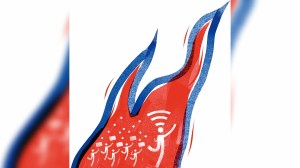Girls take over Olympiad bastion too
Girls take over Olympiad bastion tooJUNE 20: India has been sending its teams for the Mathematics Olympiad since 1989 and for the Physics ...

Girls take over Olympiad bastion too
JUNE 20: India has been sending its teams for the Mathematics Olympiad since 1989 and for the Physics and Chemistry Olympiads for the last two years. This year, though, is the first time girls have made it to an Indian Olympiad team. The four-member Indian squad for the International Biology Olympiad (IBO) – 2000 to be held in Turkey next month has two girls, Pallawi Torka and Swati Pandey.
Their names were announced today along with those of Sahajlal Dhooria and Ashok S following a marathon nationwide contest and a two-week training camp at the Homi Bhabha Centre for Science Education (HBCSE), Mankhurd.
Torka, from DAV Jawahar Vidyamandir, Ranchi who got an award for best performance in the theoretical programme, was thrilled. “This is my first tour abroad,” she said. Never mind if it is Turkey and not the much-fancied US. Pandey, from the Atomic Energy Central School No 4, Rawatbhata, Rajasthan, was equally thrilled, as was Ankita Patel from Anadalaya School, Anand, Gujarat. She did not make it to the team but bagged the best performance award in the experimental programme of the camp.
Explaining the presence of girls, team leader Dr B S Mahajan said it was because there were more girls than boys in the training camp.
Torka and Dhooria (St Xavier’s Sr Sec School, Jaipur) said the camp gave them the feeling of being a part of science by way of computer graphics, projectors and hands-on experiments. “We saw simple things like bacteria working on decomposition of bread for the first time,” Torka said.
Dr Mahajan said the students have poor knowledge of developments in biology and of research being undertaken by Indians and blamed it largely on the media.
Interestingly, all student members in the team are from Central Board of Secondary Education (CBSE) schools, and except for Ashok S, who is from P S Senior Sec School, Chennai, all of them come from small towns. Delegation leader Prof Bharat Chattoo said this was because “small town kids have less distractions.” No one from Mumbai could make it even to the earlier shortlist of 34.
However, despite the Centre-sponsored Olympiad programme in physics, chemistry and biology, top rankers have been largely opting for the traditional engineering or science streams and not pure science.
To encourage bright students to do research in pure science, the government has also introduced a national programme of fellowships called Kishore Vaigyanik Protsahan Yojana (KVPY) in science, engineering and medicine (see box). All those who make it to the national Olympiad teams will automatically get this fellowship, among others.
Kishore Vaigyanik Protsahan Yojana (KVPY), introduced last year, is funded by the Union government’s Department of Science and Technology and administered by the Indian Institute of Science, Bangalore, through the Society for Innovation and Development (IISc Campus). Details on applications and selection procedure will appear in newspapers on National Science Day, February 28.
A scholarship will be provided up to the Pre-Phd level to selected students: Rs 2,000 per month and a book contingency of Rs 4,000 per year for students between Std X-XII; Rs 3,000 per month and a book contingency of Rs 6,000 per year for college and university students. Plus, summer programmes in prestigious research institutions in the country will be organised and preferential access to facilities provided.
Photos



- 01
- 02
- 03
- 04
- 05




























